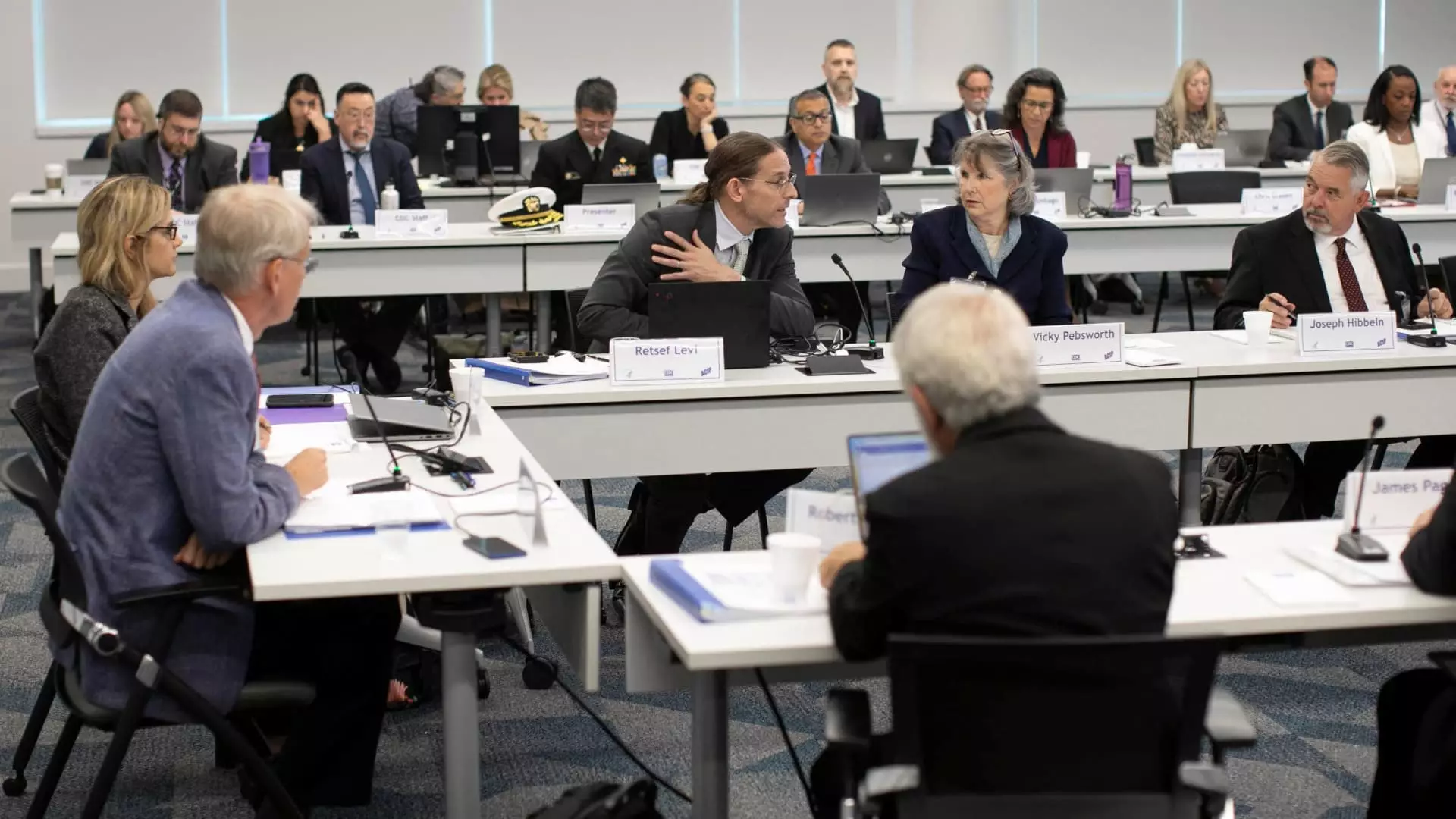Recent developments in U.S. COVID vaccination policy reveal a troubling shift away from a unified, science-based approach toward one fraught with ambiguity and skepticism. The decision by the Advisory Committee on Immunization Practices (ACIP), hand-picked by Robert F. Kennedy Jr., to weaken COVID shot recommendations signals not just a mere adjustment in health guidance but potentially a profound erosion of public trust. When guidance transitions from clear, universal recommendations to nuanced, patient-provider shared decision-making, it risks fostering confusion and skepticism among an already wary populace.
This approach, ostensibly rooted in individual choice, neglects the collective interest and the foundational principle of public health: achieving herd immunity through widespread vaccination. The move to limit the recommendation primarily to high-risk groups inadvertently trivializes the importance of vaccinating the broader population—an erroneous gamble that disregards the lessons of history where comprehensive vaccination efforts have been pivotal in curbing epidemics. It appears that political and ideological considerations—perhaps influenced by Kennedy’s vocal skepticism of mRNA technology—are increasingly guiding health policy, eroding evidence-based standards in favor of narrative-driven decisions.
The Political Overreach and Its Dangerous Consequences
The appointment of critics of mRNA technology to the vaccine advisory panel, particularly under Kennedy’s influence, risks politicizing what should be a scientific process. When panels tasked with safeguarding public health include members openly doubting vaccine safety and efficacy without robust scientific consensus, the integrity of health recommendations is compromised. This politicization threatens to widen the chasm between scientific evidence and public perception, fueling anti-vaccine sentiments and misinformation.
Moreover, the inconsistency in guidance across states exemplifies a fragile patchwork of policies that undermine national coherence. While some Democratic states continue to promote broad vaccination, federal recommendations not only sideline these efforts but also inject confusion among the public. Such rife inconsistency leaves residents questioning whom to trust—an erosion of leadership that can have deadly consequences, especially in managing a communicable disease that thrives on perceived disarray.
The Impact on Public Health and Vulnerable Populations
An ominous consequence of de-emphasizing universal vaccination is the potential decline in vaccination rates, which could hinder efforts to control COVID-19 effectively. Recent studies, including one published in JAMA Network Open, indicate that maintaining broad vaccination recommendations could prevent thousands of hospitalizations and deaths. The pendulum swing toward selective vaccination based on personal discretion complicates public health planning, creating pockets of unvaccinated populations vulnerable to severe disease.
Vulnerable groups—elderly, immunocompromised, and frontline workers—have historically benefited from widespread vaccination campaigns. Retreating from these efforts signifies a risk of reversing gains made over recent years. Such policies may embolden anti-vaccine rhetoric and foster complacency among the general population, inadvertently prolonging the pandemic’s grip on American communities.
The Role of Corporate and Insurance Interests in Shaping Vaccine Policies
Despite the political tumult, the commercial sector remains committed to maintaining vaccine coverage. Major insurance providers, representing over 200 million Americans, continue to cover COVID vaccines already recommended, regardless of evolving official guidelines. This disconnect between political advisories and insurance policies underscores the complexity of health policy implementation in reality. It suggests that, pragmatic as it may be, this fragmented approach risks prioritizing corporate interests over clear public health objectives.
Pfizer and BioNTech’s stance, emphasizing ongoing safety monitoring, exemplifies the industry’s approach to preserve public confidence amid controversy. Nonetheless, the emerging landscape—where prescription requirements and state-specific rules flourish—raises concerns about equitable access. Vulnerable populations, less equipped to navigate complex health bureaucracies, may find themselves further marginalized by policies that hinge on nuanced medical consultations instead of straightforward, universal recommendations.
Are We Losing Sight of the Scientific Evidence?
While critics like Retsef Levi raise doubts about mRNA technology’s safety and efficacy, the preponderance of scientific evidence affirms the vaccines’ role in saving lives. Multiple studies, including estimates of over two million lives saved worldwide since 2020, reinforce that vaccination remains a core pillar of pandemic response. To dismiss this wealth of evidence in favor of narrative-driven skepticism diminishes the scientific consensus built over years of rigorous research.
Yet, the political environment appears more invested in narrative than facts. The recent media coverage and policy reversals foster a climate where skepticism is amplified, and science takes a backseat. This tension threatens to undermine long-term trust in public health institutions—an essential pillar in managing current and future health crises.
The Path Forward: Reclaiming Science and Public Trust
The current trajectory threatens to undermine public health efforts and sow confusion and division. While respect for individual choice is vital, it must be balanced against the collective good underpinned by sound science. Public health institutions must reaffirm their commitment to transparency, consistency, and evidence-based policies, resisting partisan and ideological influences that threaten their authority.
In a climate of rising misinformation and politicization, it is more critical than ever to uphold integrity and reinforce that vaccination, in its broadest application, is an effective, safe, and essential tool against COVID-19. The challenge lies in bridging the chasm between scientific consensus and public perception—restoring confidence not through fear or uncertainty but through clarity, honesty, and unwavering commitment to truth.


Leave a Reply